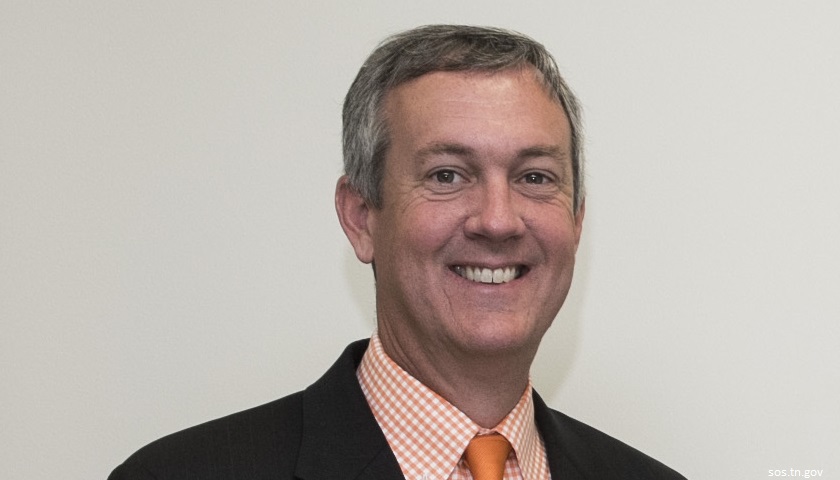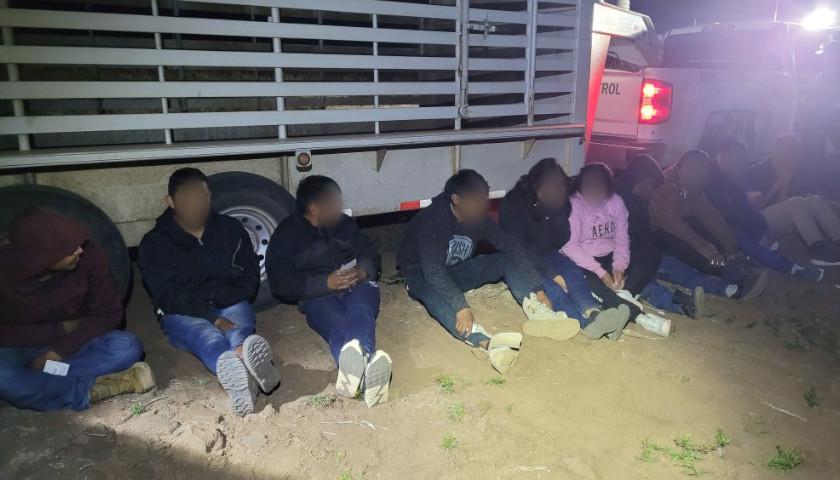Tennessee Secretary of State Tre Hargett is refusing to fully cooperate with the Presidential Advisory Commission on Election Integrity, on which Kansas Secretary of State Kris Kobach serves as vice chairman.
“Tennessee Secretary of State Tre Hargett said today his office legally can’t agree to a request from President Donald Trump’s commission on election integrity to provide personal information about voters,” the Chattanooga Times Free Press reported on Friday:
“Although I appreciate the commission’s mission to address election-related issues, like voter fraud, Tennessee state law does not allow my office to release the voter information requested to the federal commission,” Hargett, a Republican, said in a statement.
Kansas Secretary of State Kris Kobach, a Republican, is serving as vice chairman of Trump’s recently created Presidential Advisory Commission on Election Integrity.
In a letter sent Wednesday to election officials across the country, Kobach asked for their recommendations on any changes in federal law in areas like ensuring integrity of elections.
But Kobach also said that “for the Commission to fully analyze vulnerabilities and issues related to voter registration and voting, I am requesting that you provide to the Commission the publicly available voter roll data for Tennessee, including, if publicly available under the laws of your state” information voters’ full first and last names, middle names or initials, addresses, dates of birth, political party and last four digits of voters’ Social Security numbers.
The letter also says documents submitted to the commission “will also be made available to the public.” States were given a deadline of July 14 to submit the info to the commission.
Kobach’s letter also asks states to respond to a list of questions about voting in their states, inquiring about “law, policies or other issues hinder your ability to ensure the integrity of elections you administer.”
Hargett, a Republican, joins several other Secretaries of State, both Democrat and Republican, in refusing to cooperate with the request from the commission established by President Trump to stop voter fraud.
“The Washington Post reported that Connecticut’s Secretary of State, Denise Merrill, said she would “share publicly-available information with the Kobach Commission while ensuring that the privacy of voters is honored by withholding protected data,” the Times Free Press reported:
But she went on to charge that Kobach “has a lengthy record of illegally disenfranchising eligible voters in Kansas” and that “given Secretary Kobach’s history we find it very difficult to have confidence in the work of this Commission.”
The Hill, an online magazine focused on D.C. politics, reported Friday afternoon that officials in more than 10 states have announced they won’t turn over all voter roll data to President Trump’s commission on voter fraud.
“As of Friday afternoon, officials in New York, California, Massachusetts, Kentucky and Virginia had said they would not turn over any of their voter data to the voter fraud commission,” The Hill reported.
It said officials in Connecticut, Minnesota, Oklahoma, Rhode Island, Vermont, Utah, North Carolina, Indiana and Iowa said they would only turn over public information on voter rolls, but wouldn’t share private information.
On Saturday, President Trump criticized those states that are failing to cooperate with the voter fraud commission.









This is cut and dried. State law ‘Trumps’ central government’s request. We have a 10th Amendment, a 14th Amendment, a 4th Amendment, and a 5th Amendment that protects this information.
Although I appreciate your reciting amendments that are being utilized here, the people in these states do cast ballots for the president of United States. It seems completely appropriate that the federal government understand who these people are.